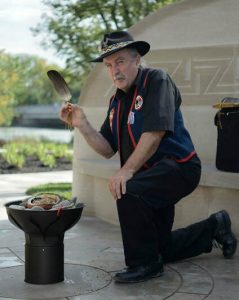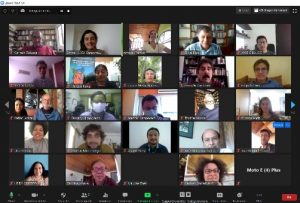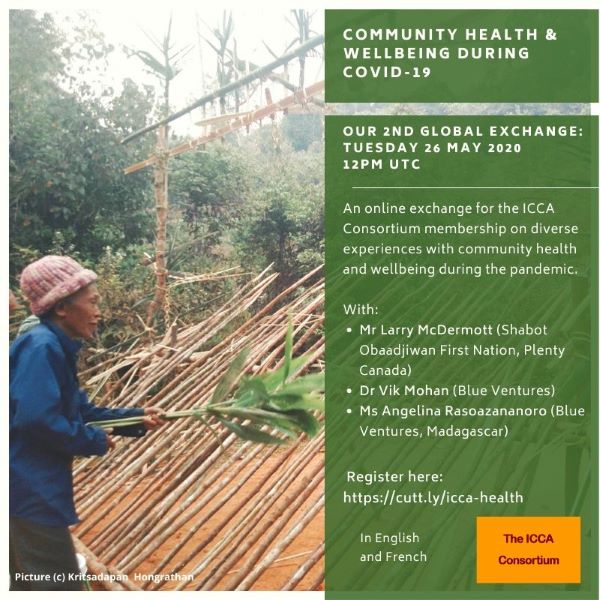First published on 05/28/2020, and last updated on 07/09/2020
On 28 May 2020, the ICCA Consortium held its second round of global exchanges on territories of life during the COVID-19 pandemic. This round focused on community health and wellbeing and included one session in French and English at 12:00 UTC and one session in Spanish at 10:00 CDT.
The speakers included Elder Larry McDermott from the Shabot Obaadjiwan First Nation and Plenty Canada (ICCA Consortium Member) and four doctors and community health technicians: Dr. Vik Mohan and Angelina ‘Lina’ Rasoazananoro from Blue Ventures (ICCA Consortium Member), Dr. Germán Zuluaga from Centro de Estudios Médicos Interculturales (CEMI, ICCA Consortium Member) and Dr. Enma Marcela Perez Conguache from the Guatemalan Ministry of Health’s unit on Indigenous peoples’ health care and interculturality. About 55 participants joined the calls.
The summary report will soon be available here.
In his opening remarks in the English and French session, Elder Larry McDermott (pictured) shared that in the Algonquin worldview, a community is not just an association of humans, it is the interdependency of many beings. COVID-19 is forcing us to slow down, look around and contemplate not only our relationships with our human communities but also our relationships with all life around us.

Elder Larry McDermott, Shabot Obaadjiwan First Nation © Plenty Canada.
Indigenous peoples and local communities who have been most affected by COVID-19 are those who already faced health concerns before the pandemic such as malnutrition or other epidemiological diseases and those who are not able to meet the standard guidance of physical distancing, regular hand-washing and use of personal protective equipment or to access intensive health care for severe symptoms. Encroachment of destructive industries, such as agribusiness or mining, not only threatens their territories of life but also increases the risk of transmission of COVID-19 from workers.
It is crucial for communities to strengthen their internal capacities to respond to the pandemic as well as political, social and economic self-reliance, including reducing dependency on external economies. Depending on the context (which varies widely), this could include guidance about how to identify legitimate information received through social media, support for grassroots communication systems and livelihood activities, advocating for respect for human rights and their specific concerns in public health policy and collaborating with local authorities on decentralised, coherent and culturally appropriate actions within their territories.
It is also important to enhance intercultural approaches to health and medicine and use of Indigenous and local knowledge and more holistic healing practices (including spiritual wellbeing) in complementary ways with other forms of medicine, while taking special care to protect elders, healers and spiritual guides given they are often the first ones consulted with problems and COVID-19 is particularly harmful for older people.
For more information, download the summary report of these exchanges [soon available].
The ICCA Consortium’s third round of global exchanges on territories of life during the COVID-19 pandemic will focus on food sovereignty. A bilingual English and French session will take place on 30 June. An English session for Asia-Pacific time zones and a Spanish speaking session will take place at different times on 2 July. Follow the links to register for each session.

Participants of the Spanish-language global exchange on community health and wellbeing during COVID-19 ©ICCA Consortium.
